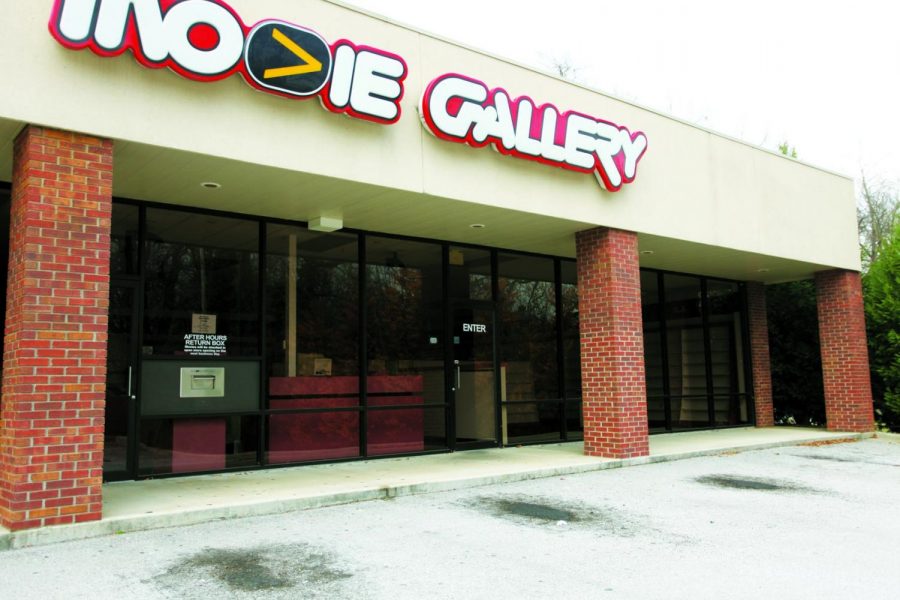Netflix puts companies out of business
February 10, 2011
Movie Gallery and Hollywood Video are now a thing of the past, and Blockbuster is close to a similar demise-the company filed for Chapter 11 bankruptcy in September 2010.
Video streaming and delivery service Netflix has forced many to change their business model or bite the dust.
Although the benefits of Netflix seem to far outweigh those of the brick-and-mortar stores, movie buffs like film and digital media production professor Jason Flynn cherish the experience of renting a movie.
Flynn believes that trips to the video store directly impacted his decision in his career path.
“I remember the nostalgia surrounding a trip to the video store when I was young,” Flynn said. “It was like the toy aisle for me.”
Flynn enjoyed trips to the video store with his father, as well as the entire entertainment experience that accompanied it; however, the experience has changed somewhat for Flynn and his own sons.
“I would hop in the car and go with my dad to pick out a movie,” he said. “Now, my kids can bring up tons of movies in my Netflix queue and watch them without ever leaving the couch.”
One of the most heralded benefits of Netflix is the instant streaming option.
Although there is no official number available from Netflix, third party site thenowhereman.com provides a searchable database for all instant streaming titles.
They are currently tracking 32,260 titles. These can all be viewed on over 200 different devices, according to Netflix, such as gaming consoles, smart phones, HDTVs and computers.
Purists have complained that instant streaming is ruining the entertainment experience of strolling down memory lane to the video store, but film and digital media production major Vance Parrish feels differently.
“As long as films are being viewed, it doesn’t matter,” Parrish said. “I really like online streaming. I can watch whatever I want and I don’t have to leave home to view it.”
Steven Herring, a sophomore at UNA and movie reviewer, agreed with Parrish about the convenience that online streaming offers.
“Everything is right at your fingertips,” he said. “There is also much bigger selection than video stores, and it’s right in front of you.”
Despite gaining a point in the convenience category, Alison Murphy, store manager at Budget Video, thinks tactile, personal interaction is completely lost.
“When you visit a video store you build a relationship with the people that work there,” Murphy said. “You can get their opinions on the titles you’re considering renting. Redbox and Netflix take everything that’s personal out of the equation.”
With video rental stores closing left and right, and Blockbuster’s liquidation pending, Murphy said that stores across the nation have had to adapt the way they operate.
“You have to look at your price points, and do what you can to stay competitive,” she said. “One of the biggest selling points for us is that we have many movies that Redbox and Netflix don’t. New releases don’t come out sometimes for 28 days on Netflix. We have them sitting on the shelves while they’re still waiting.”
The “28-day agreement” with major companies such as Sony, Warner Bros. and Universal, makes new release titles unavailable for 28 days.
The logic behind this is that the four-week window will push consumers interested in watching movies at home to buy the DVDs or pay a premium to rent them on cable video-on-demand services.
The move was likely caused by DVD purchases dropping nine percent in 2009 and an estimated 12 percent in 2010, according to Boston firm Strategy Analytics. The “28-day agreement” is one of the benefits that remaining video rental stores are clinging to.
Netflix may be viewed as the monster that killed the video stores, but Herring believes it’s not the beast it’s been made out to be.
“Netflix closed down a lot of stores, so it’s looked bad in that aspect,” Herring said. “But I think we all have to understand, Netflix is the future.”


